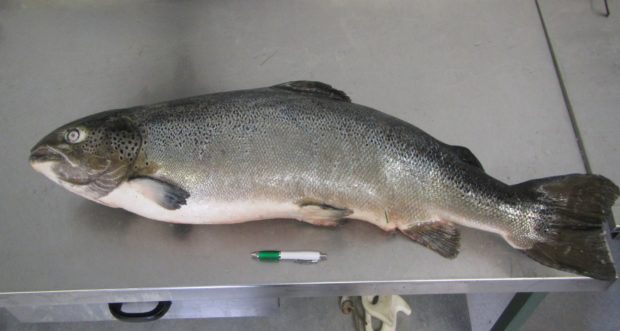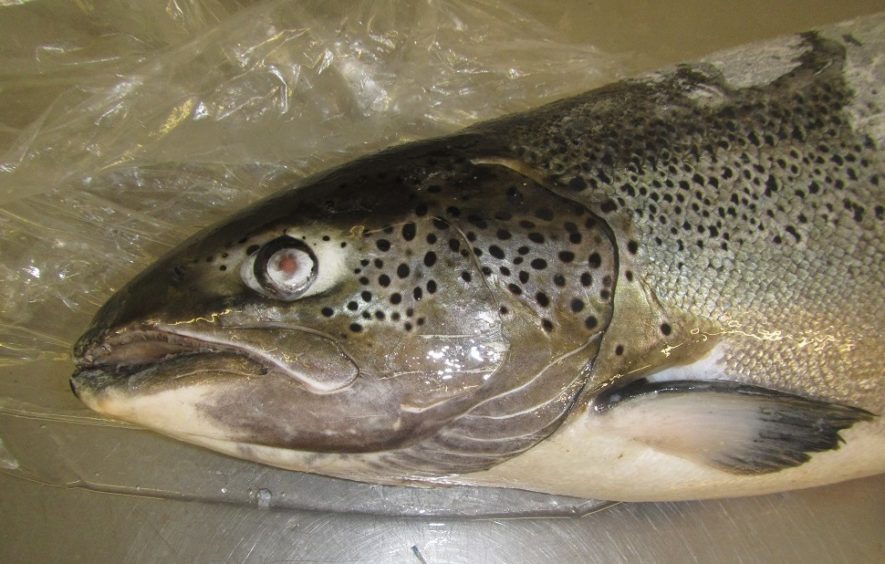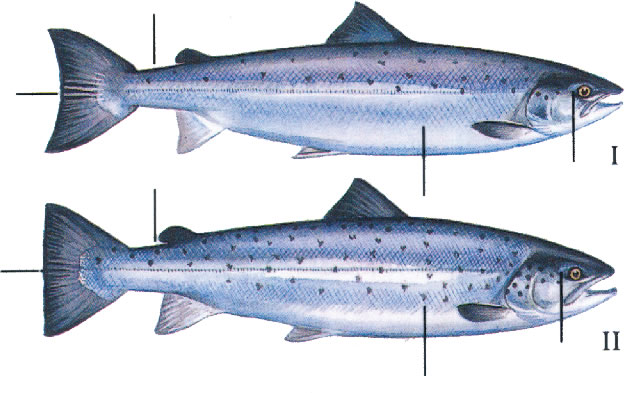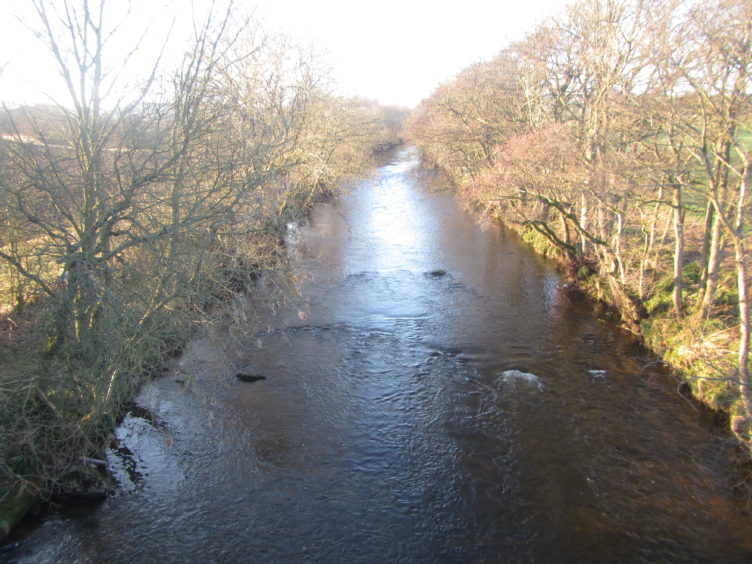
‘Record catch’ from Angus river turns out to be salmon who escaped from Norway
Marine experts have poured cold water on the prospect of a record catch from an Angus river after the monster proved to be a rogue salmon farm escapee.
by Graham BrownThe 28 pound 6 ounce specimen was landed on the North Esk near Edzell late last autumn by Euan McGrandle, sparking suggestions it could be – by a single ounce – a new British best for a rod caught sea trout.
Days ahead of the new season on the Angus Esks, river chiefs have now learned the fish may have found its way to the area from Norway.

Scientific confirmation has also been met with relief it has been taken out of the local system, averting the possibility of gene-weakening breeding with wild Scottish salmon.
Dr Craig MacIntyre of the Esk District Salmon Fishery Board said: “The main reason this was thought to be a sea trout was due to the head.
“The shape of the snout more closely resembles a sea trout than a salmon, the upper jaw extends past the line of the eye – with Atlantic salmon the upper jaw finishes in line with the eye – and there are many more spots on the gill cover that would be seen on a Scottish Atlantic salmon.”
Escaped farmed salmon, especially one of such size, are rare on east coast rivers.
The nearest salmon farms are in Orkney and Shetland, but one theory surrounds a report of large salmon escaping from a farm in Norway last year.

“The fish generated quite a bit of interest up and down the river, and even among fisheries experts opinions differed,” said Craig.
“If this was a sea trout, it would have been a British rod-caught record,” he added.
The current record is 28lb 5oz, although doubt has also been cast on that specimen being possibly a sea trout/salmon hybrid.
Mr MacIntyre added: “I sent a scale sample off to the Freshwater laboratory of Marine Scotland Science, who have reported that after hatching, the fish spent one year in freshwater, followed by two years at sea before entering the river in summer/autumn 2019.

“The growth pattern of the scales suggests that the fish had been in captivity and had come from a fish farm.
“We don’t know when the fish might have escaped from a farm, but given the erosion on the fins, which occur on the farm, it was probably sometime in 2019.
“Ultimately, it was good news that the fish was killed before it had a chance to breed with wild Scottish salmon.
“We know from scientific studies that the genes of farmed salmon are inferior to wild salmon, that the eggs they produce are not as good, that their progeny are less suited to wild environments, and that basically they are not as genetically ‘fit’ as wild salmon.”